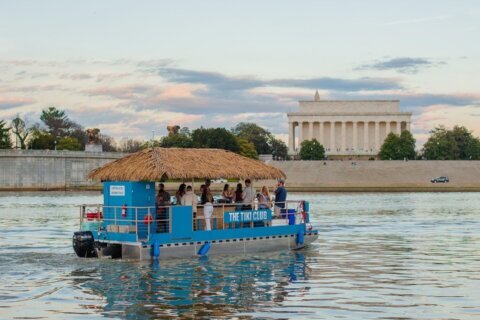September is National Preparedness month, and this year’s campaign, sponsored by the Federal Emergency Management Agency, is focused on making sure older Americans are ready for when natural disasters strike.
Officials across the D.C. region are offering updated planning resources and in-person events throughout the month of September.
The DC Homeland Security and Emergency Management Agency will host internet safety workshops for seniors sponsored by the Office of the Chief Technology Officer:
- On Sept. 14 at 11 a.m. at the Washington Senior Center at 3001 Alabama Ave SE.
- On Sept. 14 at 1 p.m. at the Rooftop Conference Room on 555 E Street NW.
- On Sept. 21 at 11 a.m. at the Model Cities Senior Center at 1901 Evarts St NE.
- On Sept. 28 at 11 a.m. at the Washington Senior Center at 3001 Alabama Ave SE.
The D.C. agency is also offering a preparedness guidebook that includes resources like templates and planning documents to create a preparedness plan and contact information for District agencies and community partners.
In Montgomery County, Maryland, the Office of Emergency Management and Homeland Security has teamed up with Montgomery County Recreation Centers to offer management and planning sessions from 11 a.m. to 1 p.m. on Fridays.
- Sept. 8 – Wheaton Senior Center, 11701 Georgia Ave, Wheaton
- Sept. 15 – Long Branch Senior Center, 8700 Piney Branch Road, Silver Spring
- Sept. 15 – Margaret Schweinhaut Senior Center, 1000 Forest Glen Road, Silver Spring
- Sept. 22 – Damascus Senior Center, 9701 Main Street, Damascus
- Sept. 22 – White Oak Senior Center, 1700 April Lane, Silver Spring
- Sept. 29 – Holiday Park Senior Center, 3950 Ferrara Drive, Silver Spring
- Sept. 29 – North Potomac Senior Center, 13850 Travilah Road, Potomac
Officials in Prince William County and Arlington County, Virginia, are reminding residents of steps they can take at home, such as building a kit of emergency supplies, making an emergency plan, and signing up for county alerts.
In a news release, FEMA Administrator Deanne Criswell said older adults face greater risks during extreme weather events, “especially if they are living alone, are low-income, have a disability, or live in rural areas.”
According to the American Red Cross, there are several factors that make older adults more vulnerable after disaster strikes, including chronic conditions, a higher reliance on assistive devices such as walkers, and an increased likelihood that they are more socially isolated.
“FEMA is evolving the way we engage with communities to be more inclusive and impactful than ever before,” Criswell said, “which includes meeting older adults where they are and getting them the preparedness resources, they need and deserve.”







